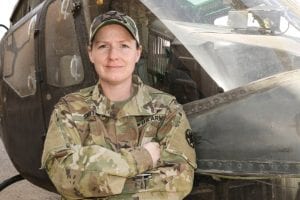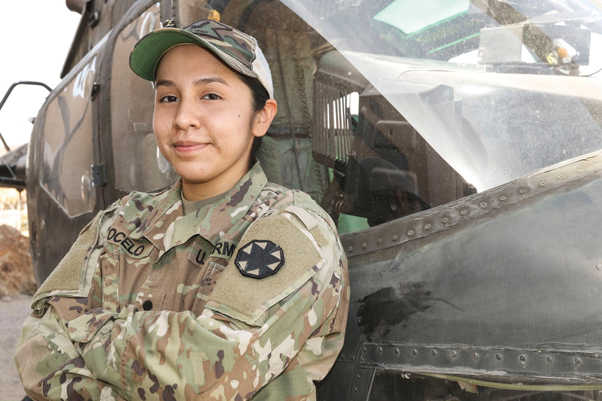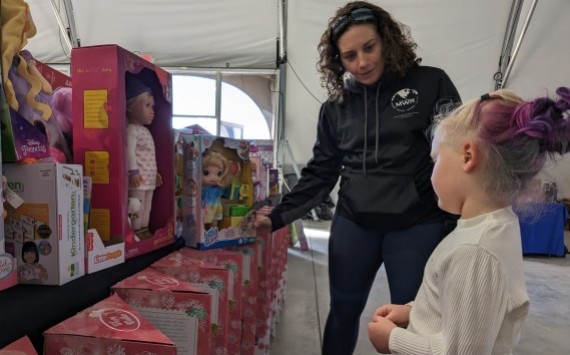FORT IRWIN, Calif — March 22 is celebrated as “Rosie the Riveter Day” and we want to honor two, present-day “Rosie the Riveters” right here at NTC/Fort Irwin.
Rosie the Riveter was the star of a campaign aimed at recruiting female workers for defense industries during World War II, and she became the most iconic image of working women.
Today, Rosie the Riveter reminds people of the heroic way women took on industrial jobs traditionally held by men, and even became soldiers to assist with the war effort. Their bravery reflects the remarkable contribution of women in the past and present.
NTC/Fort Irwin Staff Sgt. Kristen Smith and Spc. Veronica Ocelo specialize as 15T’s, UH-60 helicopter repairers, and are primarily responsible for supervising and performing maintenance on helicopters known as Black Hawks— a job that is comprised of only 2% female Soldiers. At the National Training Center, these maintainers serve in the Operations Group on the Eagle team and performed maintenance on the OH-58 Kiowas before the aircraft were retired September 2020.
“Sergeant Smith has been an inspiration to me,” Ocelo said. “She’s a great mentor and has made me push myself to be better person, not only for me and my current team, but for future soldiers I may become the NCO of— males and females alike— she makes sure nobody is left behind.”

Ocelo said being a maintainer is difficult. As an aircraft maintainer, she and Smith are responsible for performing routine scheduled inspections on the aircraft. This includes servicing and lubricating aircraft and subsystems, preparing aircraft for inspections and maintenance checks. They also assist in diagnosing and troubleshooting the aircraft, repairing, and installing engines, as well as making repairs to the aircraft rotors and mechanical flight controls.
“You have to prove yourself every day making sure you’re doing everything correctly,” Ocelo said. “You could be putting someone’s life at risk. You have to take that responsibility seriously.”
Ocelo came to Fort Irwin straight from Advanced Individual Training, where she learned the skills needed to be a maintainer and has served in the Operations Group for almost three years.
“Some females enter the Army with the mindset and expectation that they need to push harder than their male counterparts and that’s not the case,” Smith said. “In reality you just need to do your job, in my case that means making sure repairs are made and ensuring that the aircraft are safe and ready to fly.”
Smith, who has 12 years of service, shared that there is not a lot of female leadership in her MOS. She found great mentorship in strong female pilots but acknowledged that having a senior NCO in the job that knows her job, and understands her would have been helpful when she was a young Soldier.
“I think if there were more women in aviation maintenance units, it would add to the known opportunities for younger girls,” Smith said. “They may see themselves in you and what you’re doing and decide on that for their career choice too.”












